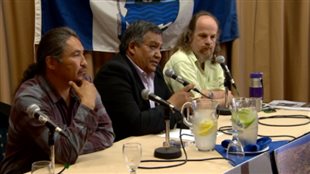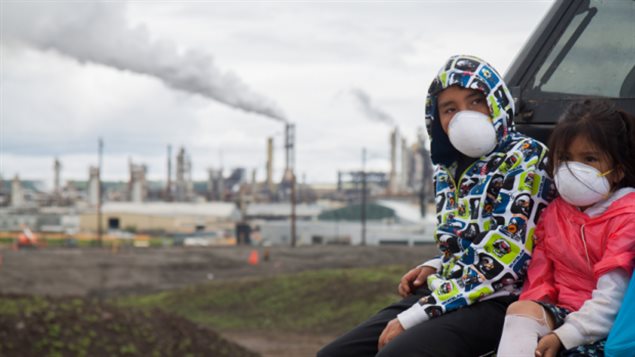Members of the remote aboriginal community of Fort Chipewyan in the western province of Alberta have long worried about pollution from oilsand development nearby and cancer rates in the community. A new study conducted by First Nations groups and scientists says that oilsands development “compromises the integrity of the environment and wildlife, which in turn adversely affects human health and wellbeing.”

‘Holistic’ study
The study was done in a holistic way, says researcher Stephane McLachlan, a professor of environmental health at the University of Manitoba. Information was collected directly from members of the community on their medical history, lifestyle including foods they ate.
Study shows game is contaminated
Traditional foods were tested. Tissue samples were taken from ducks, beavers, moose, muskrats and fish and they were found to contain high concentrations of carcinogenic polycyclic aromatic hydrocarbons and levels of heavy metals high enough to be dangerous to young children.
Listen“People who suffered from cancer, tended, and this was statistically significant, ate more traditional foods and ate more locally caught fish than people who didn’t have cancer,” says McLachlan. “Secondly, what we showed was that people who have cancer are much more likely to work in the oilsands than people who don’t have cancer.
“And so, for the first time, we can show a direct link between the direct influences of the oilsands in terms of employment and the indirect influences as they’re mediated through food on cancer occurrence.”
Aboriginals eating less traditional food
The study also showed members of the community are eating less traditional food because they are concerned it may be contaminated. They are eating more store-bought foods which are expensive and less healthy.
McLachlan says First Nations people want more study and they are not out to shut down the oilsands industry. He says they depend on it for their economic livelihood.
“What they want is a more accountable, a more sustainable and ultimately a better oilsands industry, one that they can participate in and one that they can monitor for themselves but also for all Canadians.”







For reasons beyond our control, and for an undetermined period of time, our comment section is now closed. However, our social networks remain open to your contributions.